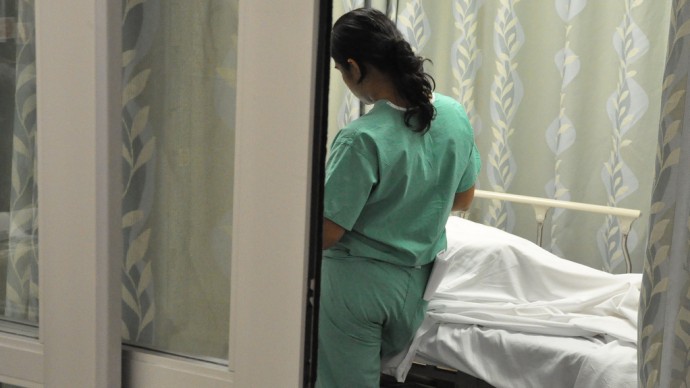
When Medicare begins adjusting hospital payments in October based on quality, one of the primary metrics will be patient experience ratings that cover everything from the communication skills of doctors and nurses to their promptness in responding to complaints about pain. A new study finds that this change may add to the financial troubles of safety net hospitals, which primarily serve poor patients.
The study in the Archives of Internal Medicine found that safety net hospitals tend to get poorer marks from patients than do other hospitals. On average, they drew top ratings from 63.9 percent of patients while the hospitals that treated the fewest poor people got top ratings from 69.5 percent of patients.
Even more worrisome for the safety net hospitals, the gap between how their patients rate them and the scores that other hospitals get has widened in the four years that hospitals have had to publicly report their survey results. The authors wrote that “we found that U.S. SNHs [safety net hospitals] performed more poorly than other hospitals on nearly every measure of patient experience and that gaps in performance were sizeable and persistent over time.” The article did not determine why that gap exists.
If the trend continues, it means safety net hospitals will be at a disadvantage when the Centers for Medicare & Medicaid Services uses the scores to dole out bonuses and penalties that will ultimately amount to 2 percent of regular Medicare payments. In the first year of theHospital Value-Based Purchasing program that kicks in this October, patient experience scores will determine 30 percent of the bonus, with the rest being determined by how hospitals adhere to basic guidelines for clinically recommended care. The hospitals that perform best will gain money, while those that lag in scores and improvement over time will end up with less.
An accompanying editorial by Katherine Neuhausen, a family physician at the University of California, Los Angeles, and Mitchell H. Katz, director of the Los Angeles County of Public Health Services, warns that the financial losses could push safety net hospitals “closer to the brink of bankruptcy,” especially since the 2010 federal health law in October 2013 will start reducing special payments to hospitals that treat disproportionately large numbers of poor people.
“Safety-net hospitals that are already drained by the DSH [disproportionate share payment] reductions are likely to lose additional funds under this program, leaving them without any capital to launch initiatives to improve quality and patient experience. Over time, VBP [value-based purchasing] could worsen the disparities between prosperous non-SNHs and struggling SNHs. It would be a tragedy if the combined stressors of the DSH cuts and VBP trigger the closures of SNHs. These hospitals will still be needed to care for the estimated 23 million individuals who will remain uninsured even if health care reform is fully implemented…. The closures of SNHs would also be detrimental to the millions of insured Americans who rely on them for specialized services such as trauma care, disaster relief, burn treatment, neonatal intensive care, psychiatric care, and substance abuse treatment. These unprofitable services are more likely to be offered by SNHs than non-SNHs.”
This story was originally published by Kaiser Health News.


